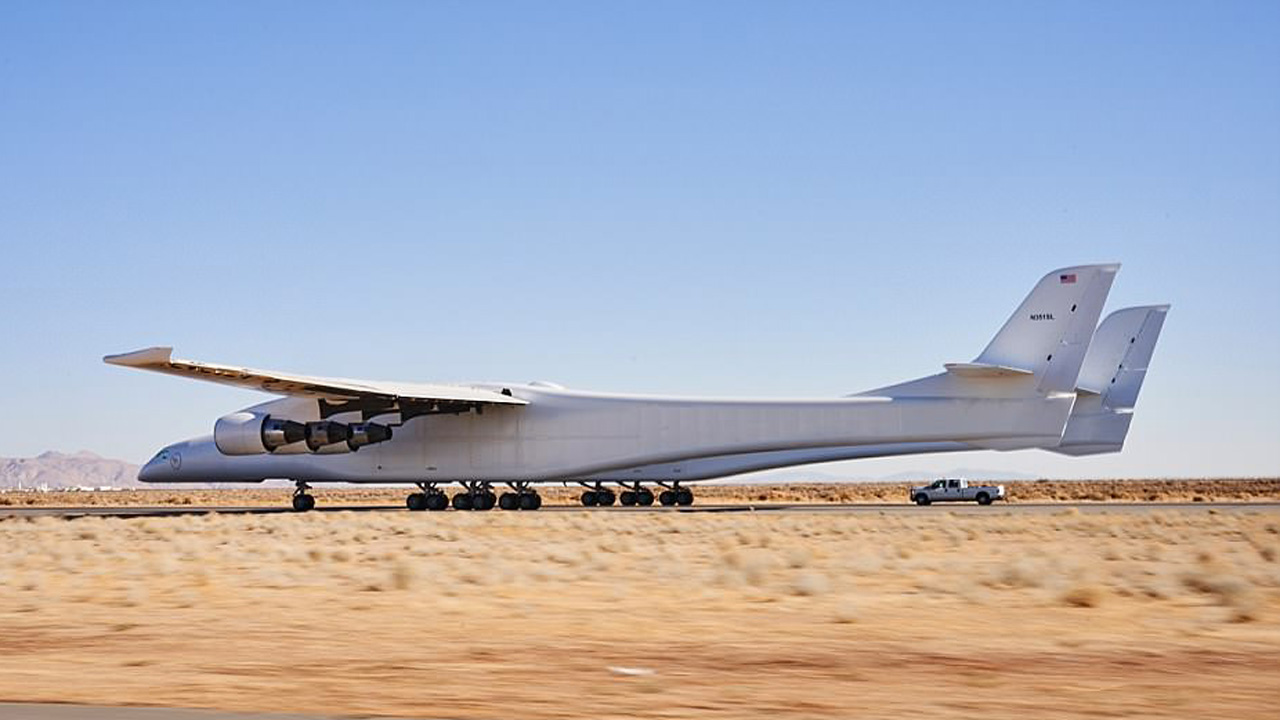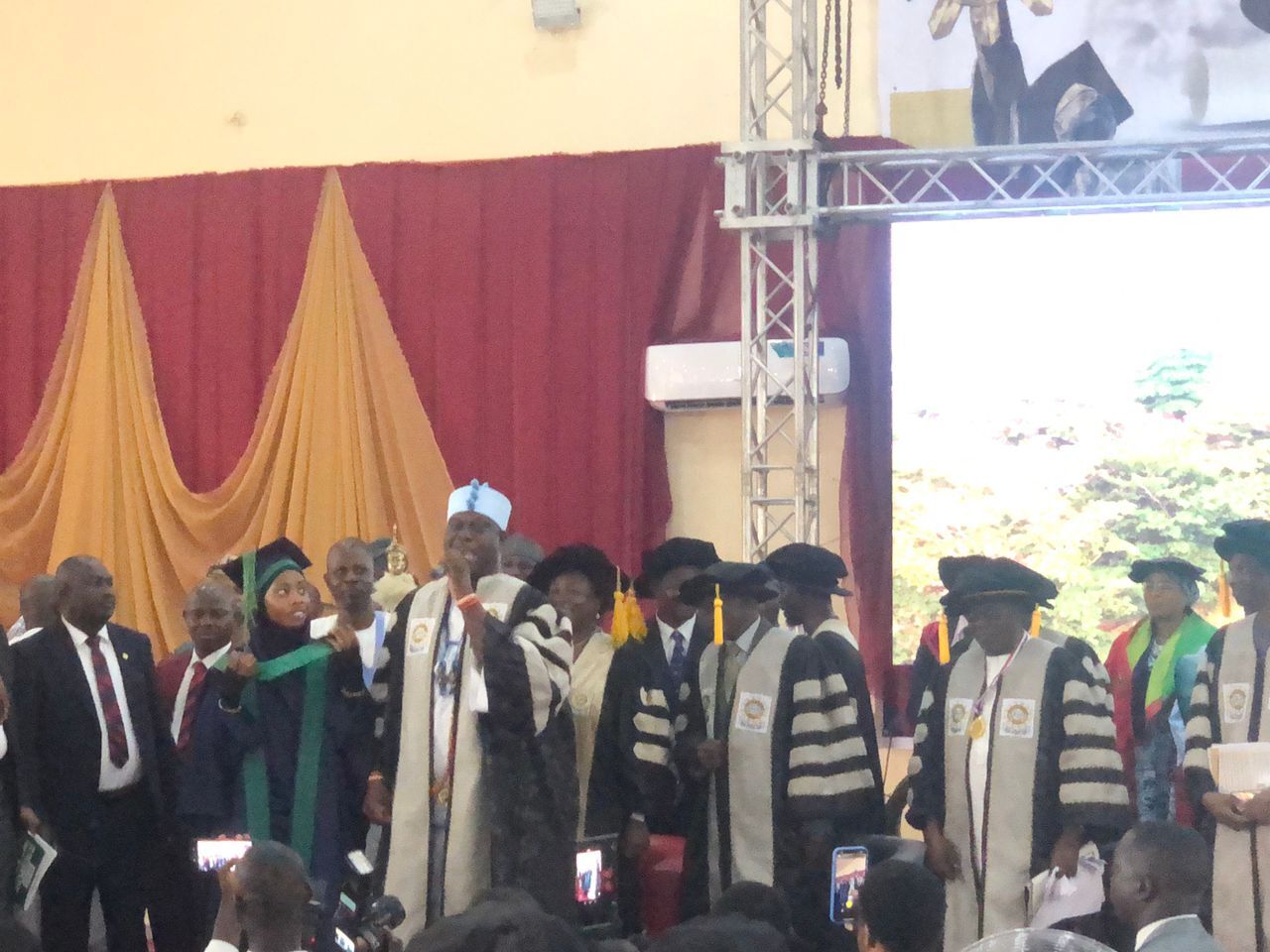
The world’s largest plane, Stratolaunch, could be just months away from its first flight.
The aircraft, which is the vision of Microsoft co-founder Paul Allen, has a wingspan longer than a football field and comes equipped with two cockpits, 28 wheels and six engines normally used to power 747 jumbo jets.
Eventually, it will be used to transport rockets carrying satellites and people into the Earth’s upper atmosphere, where they will blast off into space.
At the 34th Space Symposium in Colorado, Stratolaunch revealed that it hoping to conduct the monster plane’s first flight this summer.
It has already gone through two taxi tests in the past few months, with top speeds if 28mph (41km/h) and 46mph (74km/h).
The plane still has to go through three more taxi tests before it can fly, the company said.
According to Engadget, Stratolaunch has to reach taxi speeds up to 80mph (128km/h) and then 138mph (222km/h) during its next tests.
For comparison, typical jetliners have to go as fast as 150 to 180 mph to take off (241km/h to 190km/h).
As well as sending cargo to space, the plane could be used to launch a secretive Shuttle-sized rocket codenamed ‘Black Ice’, according to its creator.
The claims were made earlier this year by Christian Davenport, a reporter who covers the defence and space industries for the financial desk of the Washington Post.
He interviewed Stratolaunch and Microsoft co-founder Paul Allen, in preparation for his upcoming book on the new space race developing between tech billionaires – including Tesla and Space X CEO Elon Musk, and Amazon and Blue Origin founder Jeff Bezos.
During conversations last summer, Allen, who wants the Stratolaunch to act as a giant air pad in the sky, allowing payloads to reach space faster and at a lower cost than existing technologies, detailed the firm’s plans for the giant aircraft.
In an excerpt published by the Washington Post, Allen said: “I would love to see us have a full reusable system and have weekly, if not more often, airport-style, repeatable operations going.”
Black Ice could be launched from anywhere with a runway large enough to safely accommodate the giant plane it would be strapped to.
Once its mission is complete, the vehicle could then land back on a runway and be prepared to fly once more.
Speaking about the possibility of manned missions, Allen said: “If you caught the bug back in the Mercury era, of course it’s in the back of your mind.
“But I think you’re seeing right now, other than (space station) resupply missions, most spaceflights are about launching satellites. That’s the reality. As well as sending cargo to space, the plane could be used to launch a secretive Shuttle-sized rocket codenamed ‘Black Ice’, according to its creator.
“And they are extremely important for everything from television to data all over the world. You can get data in the Kalahari Desert because there’s a satellite up there.”
In its latest low-speed taxi test, conducted on February 25, 2018, all six of its 8,940lbs (4,000kg) engines were fired.
The Stratolaunch is so large it needs twin fuselages, each equipped with its own cockpit.
The main purpose of the latest test, which took place at California’s Mojave Air and Space Port, was to put the aircraft’s ability to steer and stop through its paces.
A ground team from Stratolaunch Systems Corp monitored a number of systems, including steering, braking, anti-skid and telemetry.
Engineers conducted the aircraft’s first low-speed taxi test in December, but during this run the vehicle only hit 25 knots (28mph/45km/h).
When the aircraft is eventually airborne, the three-person crew – pilot, co-pilot and flight engineer – will sit in the right-hand fuselage, steering the plane a fair distance to the right of the centerline.
The left-hand fuselage has what looks like a cockpit with windows to onlookers, but the section is in fact empty and unpressurised.
The Stratolaunch weighs approximately 500,000 pounds without any cargo, and designed to carry a maximum takeoff weight of 1.3 million pounds, according to The Verge.
[ad unit=2]






